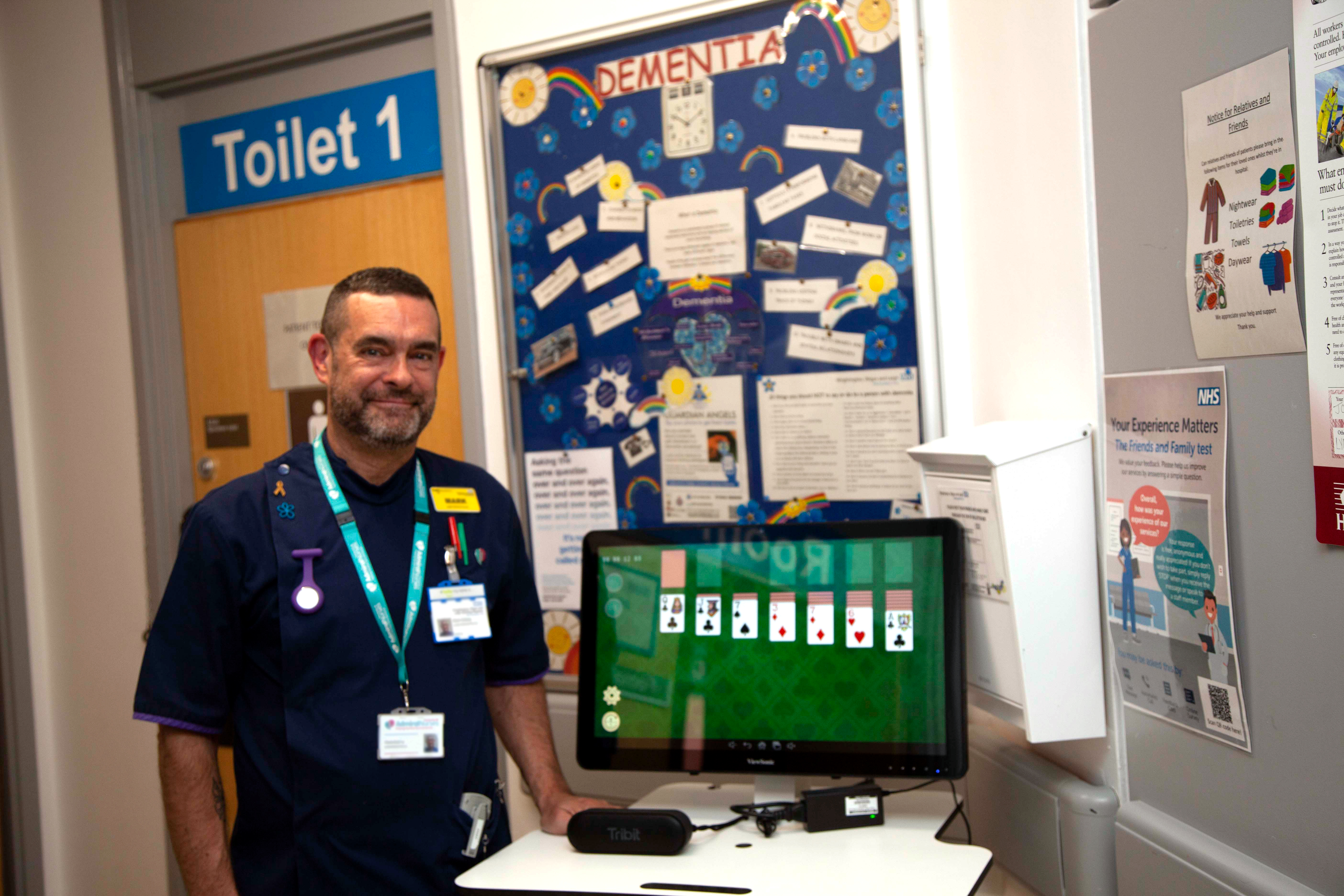
In recent months, Wrightington, Wigan and Leigh Teaching Hospitals NHS Foundation Trust (WWL) has introduced a variety of new systems and treatments to enhance the ways in which the Trust cares for patients with dementia.
One of these is the pioneering Reminiscence Interactive Therapy Activity (RITA) system, introduced to WWL wards in March, which gives patients access to a wide variety of interactive content.
RITA is a relatively new tool in the fields of nursing and healthcare and utilises user-friendly interactive screens and tablets to blend entertainment with therapy.
Each screen allows patients to enjoy relaxing music, watch archived BBC news footage and view old photographs to help spark memories and spark conversations on the wards.
Since RITA’s inception in March, films and music have proved to be popular, with two patients, who were previously very quiet, starting to interact whilst watching a “Carry On” film.
This has resulted in some patients feeling less isolated, but it has also encouraged another patient to listen to music and, as a result, ask for something to drink when previously colleagues were struggling to get them to drink.
Mark Oakley, Lead Admiral Nurse led the way in bringing RITA to WWL and commented on how the service has improved the care we provide for our dementia patients stating: “As the Lead Admiral Nurse I am always looking at ways we can individualise care for any patient with a dementia diagnosis and thus improve their experience.
“Quite early on in my role I realised that there were limited activities that we were able to offer staff and patients with dementia to actively interact and engage. With my knowledge about the RITA system, I felt I should champion this for our patients and actively sought funding to purchase and provide this.
Kim Whiteside, Deputy Divisional Director of Nursing for Medicine spoke on the positive impact RITA has had saying: “The RITA system has been an essential addition to the resources colleagues have when caring for patients who are living with cognitive impairments, such as dementia and the system is currently in use in our inpatient wards and our Emergency Department.
“One of the biggest challenges staff face is when a patient becomes distressed when they are in an unfamiliar environment or are feeling unwell or out of control. The RITA system provides meaningful activity to help patients relax and prevent these potentially stressful situations.”
The RITA system also allows colleagues to build up a picture of our patients’ likes and dislikes and provides an understanding of what they enjoyed before being admitted to hospital. In turn, this allows staff to provide a more personalised style of care and helps colleagues to better meet the specific individual needs of each patient.
Feedback on the RITA system from both patients and their families has been extremely positive so far and there are plans to further its use with plans currently being developed to use RITA to start a Film Club in the Trust’s chapel once a month for both patients and their loved ones.
Kim Whiteside, Deputy Divisional Director of Nursing for Medicine spoke on the positive impact RITA has had saying: “The RITA system has been an essential addition to the resources colleagues have when caring for patients who are living with cognitive impairments, such as dementia and the system is currently in use in our inpatient wards and our Emergency Department.
“One of the biggest challenges staff face is when a patient becomes distressed when they are in an unfamiliar environment or are feeling unwell or out of control. The RITA system provides meaningful activity to help patients relax and prevent these potentially stressful situations.